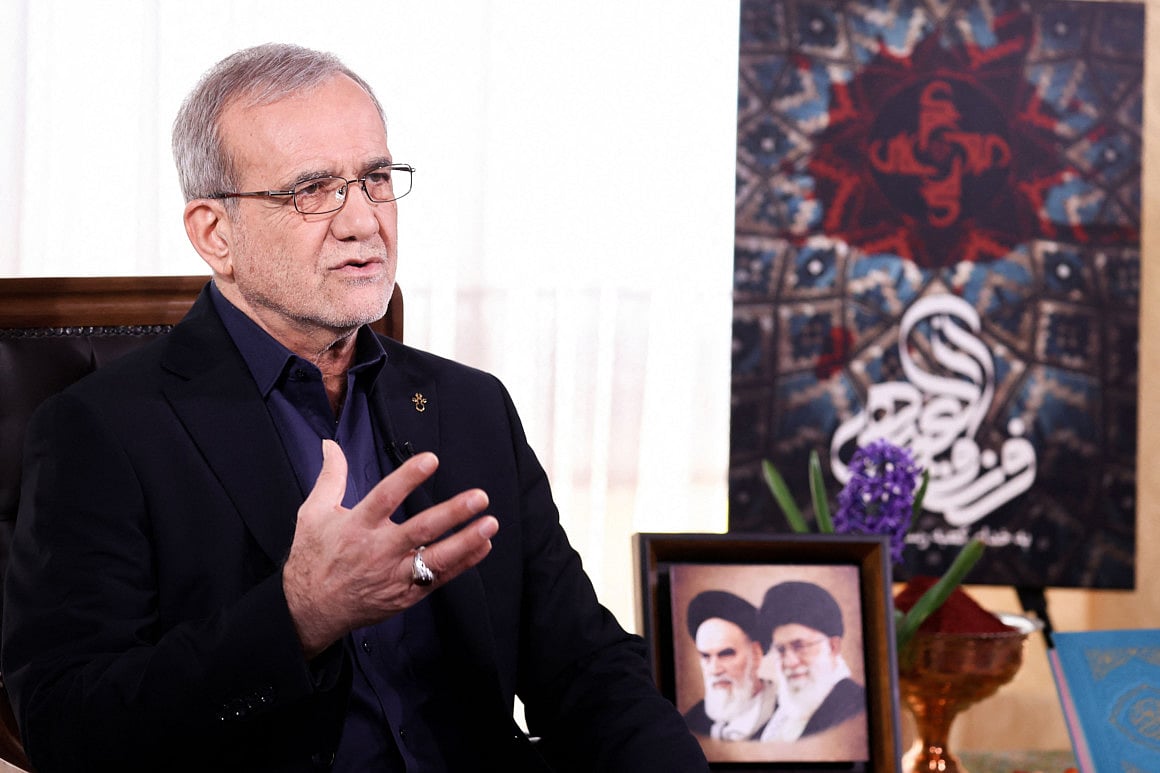Tehran: Iran has told US President Donald Trump it won’t engage in direct negotiations with his administration, Iranian President Masoud Pezeshkian said in televised remarks.
Pezeshkian said the decision was conveyed in Supreme Leader Ayatollah Ali Khamenei’s response to a letter Trump had sent earlier this month on the prospect of new talks over Tehran’s nuclear programme.
He said Iran’s response also indicated that indirect communication with the US would remain a possibility, as it had in the past.
It’s the behaviour...
“They must prove that they can build trust regarding their decisions, and I hope this will happen,” Pezeshkian said.
“It’s the behaviour of the Americans that determines the future path of negotiations.”
Pezeshkian said Iran’s response left open the possibility of indirect negotiations with Washington. However, such talks have made no progress since Trump in his first term unilaterally withdrew America from Tehran’s nuclear deal with world powers in 2018.
In the years since, regional tensions have boiled over into attacks at sea and on land. Then came the Israel-Hamas war in the Gaza Strip, which saw Israel target militant group leaders across Iran’s self-described “Axis of Resistance.” Now, as the US conducts intense airstrikes targeting the Iranian-backed Houthi rebels of Yemen, the risk of military action targeting Iran’s nuclear programme remains on the table.
Breach of promises
The Bushehr nuclear power plant is seen in a coastal village on the northern coast of the Persian Gulf in Bushehr province, Iran, on April 29, 2024.
“We don’t avoid talks; it’s the breach of promises that has caused issues for us so far,” Pezeshkian said in televised remarks.
The White House offered no immediate reaction to the announcement.
Trump’s letter came as both Israel and the US have warned they will never let Iran acquire a nuclear weapon, leading to fears of a military confrontation as Tehran enriches uranium at near weapons-grade levels — something only done by atomic-armed nations.
Iran has long maintained that its programme is for peaceful purposes, even as its officials increasingly threaten to pursue the bomb.
In 2018, Trump withdrew the US from an international accord that imposed restrictions on Iran’s nuclear-enrichment activities in return for sanctions relief.
Since the start of his second term, he’s revived the so-called maximum pressure strategy, ramped up sanctions and warned of military action against Iran if efforts for a new deal fail.
Iran delivered its response to Trump’s letter via Oman on Wednesday, according to the country’s Foreign Minister Abbas Araghchi.
Over the weekend, Araghchi described the letter as containing “both a threat and an opening for diplomacy,” adding that Iran remained skeptical of Trump’s intentions.
Sign up for the Daily Briefing
Get the latest news and updates straight to your inbox
Network Links
GN StoreDownload our app
© Al Nisr Publishing LLC 2026. All rights reserved.
